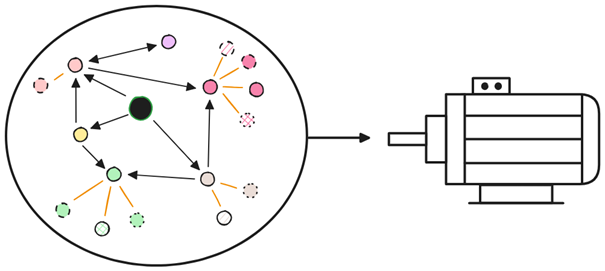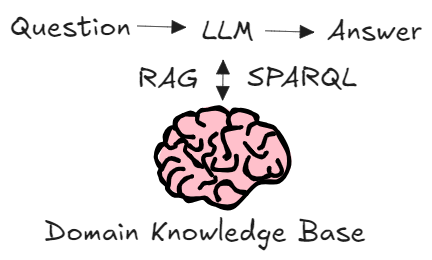From Fuzzy Queries to Formal Knowledge: RAG with OWL Ontologies
- Subject:Information-Driven Engineering of Automation Systems
- Type:Bachelor- / Master Thesis
- Date:ASAP
- Supervisor:
-
This thesis aims to conduct the combination of local LLMs and formal OWL ontologies for expert knowledge retrieval.
Motivation
Artificial Intelligence (AI) has gained significant attention in recent years, particularly through the impressive capabilities of large language models (LLMs) in everyday applications. However, these models often struggle to answer questions that require deep, domain-specific knowledge. For example, the design of electric drive systems demands expert-level understanding to select appropriate components and configurations.
Such domain knowledge can be formally represented using ontologies, especially in the Web Ontology Language (OWL). OWL ontologies not only structure knowledge but also enable automated reasoning through inference engines, allowing implicit knowledge to be derived from explicitly modeled facts. This can significantly reduce the effort required for manual modeling.
To make this knowledge usable in practice, LLMs must be able to interpret vague or imprecise user queries and retrieve precise, structured information from the ontology. This approach is known as Retrieval-Augmented Generation (RAG). While RAG has been explored in various contexts, there are only a few approaches that integrate it with OWL ontologies. Additionally, running LLMs locally—rather than on external servers—can be crucial for companies dealing with sensitive data.
Goals:
The aim of this thesis is to develop a conceptual framework that enables the use of local LLMs to query OWL ontologies via a RAG-based approach. The system should be capable of interpreting user input, retrieving relevant information from the ontology, and generating meaningful responses based on that knowledge.
The work will involve:
- Develop a design strategy for OWL ontologies.
- Designing a method for integrating RAG with OWL ontologies.
- Ensuring compatibility with locally hosted LLMs.
- Develop a testing procedure to measure the outcoming results of your approach.
HELPFUL PRIOR KNOWLEDGE:
- Programming skills and enjoyment of software development
- First experience with knowledge graphs (OWL and SPARQL)



